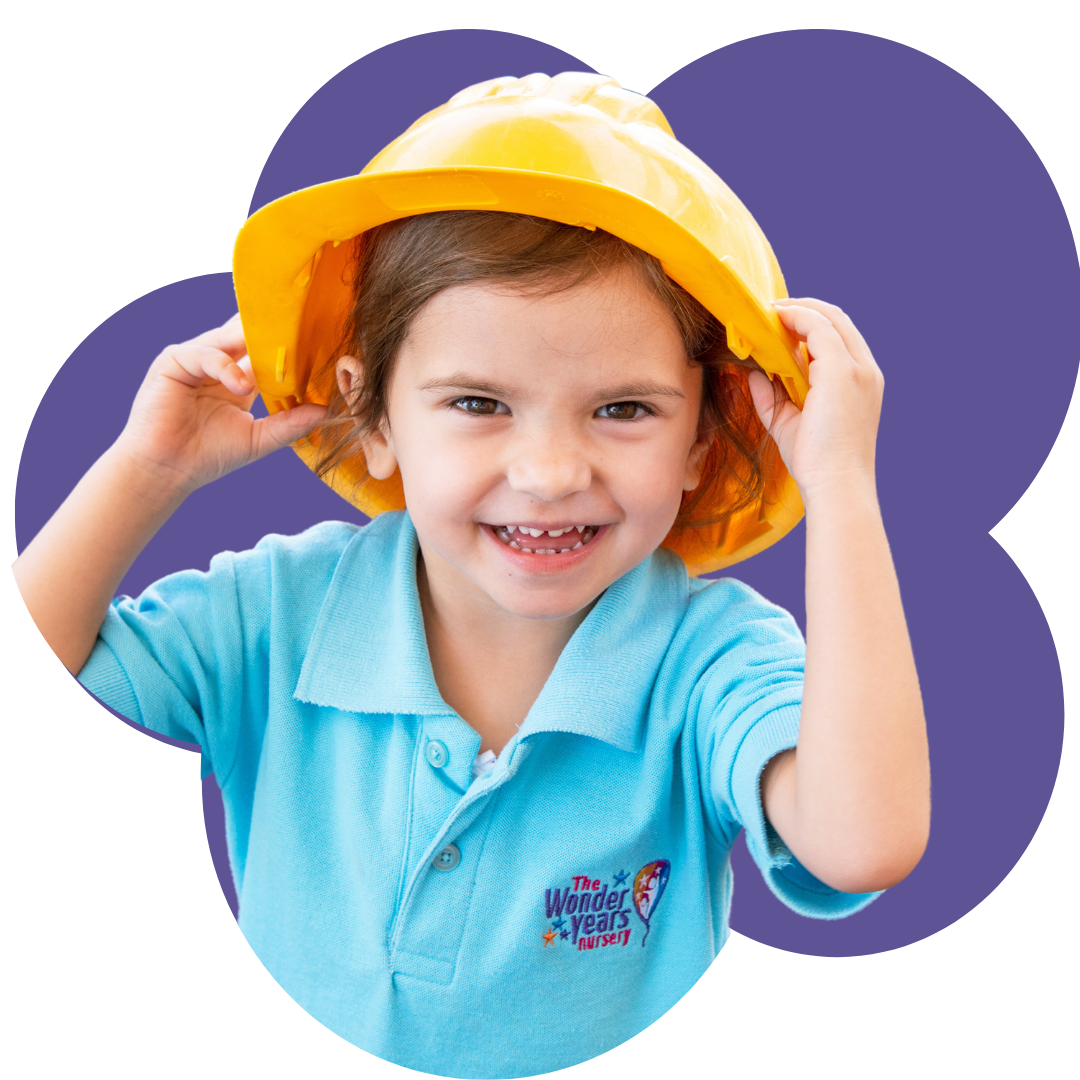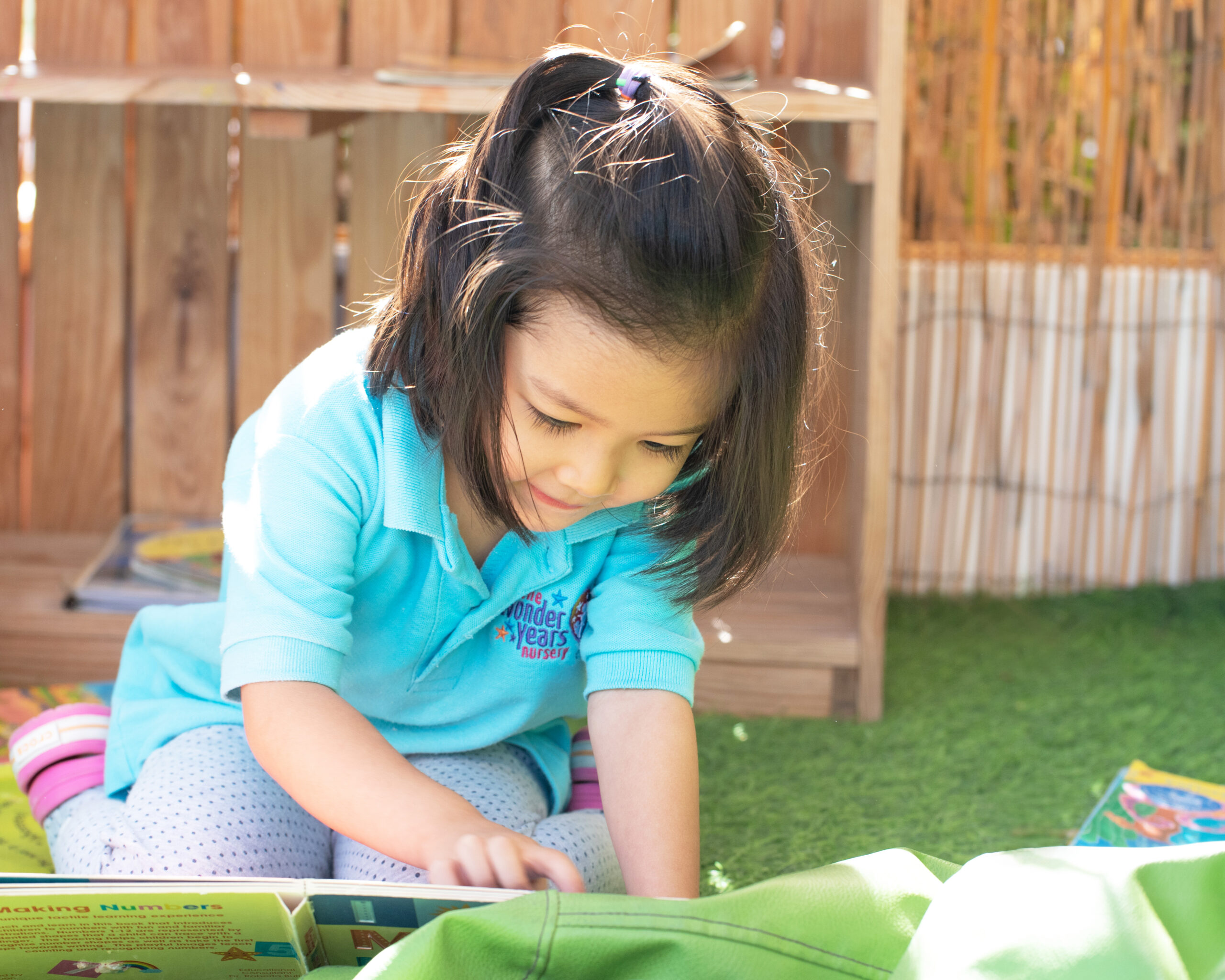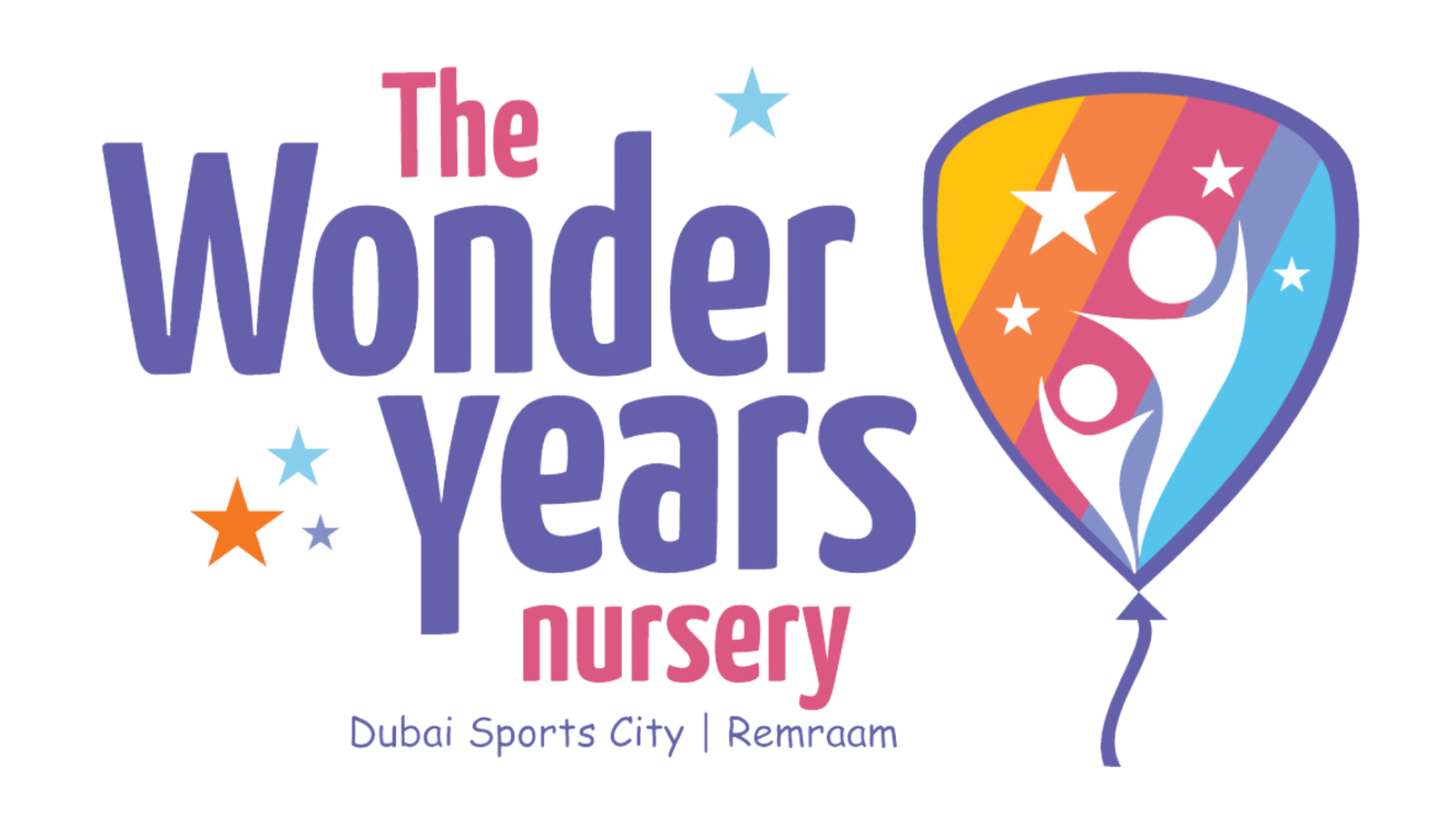Nurturing
Class Communities


Our Class groups
Our age cut off date is 31st August, in line with the KHDA requirements
- 6-12 MONTHS
- 12-18 MONTHS
- 18 MONTHS – 2 YEARS
- 2 – 3 YEARS
- 3 – 4 YEARS
Babies (6 -12 Months)
Ratio 1:3
In this precious stage of development, our focus is on providing a nurturing and stimulating environment for babies to explore and interact with the world around them. Our specially designed classrooms are equipped with age-appropriate toys and materials to support their sensory and cognitive growth. With a low student-to-teacher ratio of 1:3, we ensure personalized attention and care for each baby. Our curriculum encourages learning through gentle interactions, play, and sensory experiences. We prioritize creating a safe and secure environment where babies can develop their motor skills, socialize, and embark on their journey of early exploration and discovery.
12 – 18 MonthsWALKERS (12-18 MONTHS)
Ratio 1:3
As children transition into the exciting phase of walking and exploring their surroundings, we provide a supportive environment that encourages their curiosity and independence. Our classrooms are thoughtfully designed to accommodate their developmental needs, with engaging play areas and hands-on activities. With a low student-to-teacher ratio of 1:3, we ensure individual attention and a nurturing atmosphere for their growth. Our curriculum focuses on interactive play, sensory exploration, and language development. Through arts and crafts, sensory play, and outdoor experiences, we foster their physical, cognitive, and social-emotional development. We strive to create a space where walkers can freely explore, interact, and build their skills as they embark on their learning journey.
18 Months to 2 YrsTODDLERS (18 MONTHS – 2 YEARS)
RATIO 1:5
At this age, children begin to show an increasing independence and obvious pleasure in moving, communicating and learning through play. Our classrooms are specially designed and equipped to offer the ideal, welcoming ‘home to nursery’ transition and cater specifically to children’s developmental needs according to their age, in terms of decoration, resources, toys and educational materials, furniture and furnishings, etc. Our programme is based on the UK Birth to 5 Matters for Early Years and includes activities such as arts and crafts, heuristic play, music and movement, exploratory areas, messy play, sensory development and plenty of opportunity for free play both indoors and outside.
2 to 3 YearsNURSERY (2 – 3 Years)
RATIO 1:6
Walkers, Talkers and Pretenders: At this age children display a greater competence at moving, talking and pretending. They also show increased confidence in themselves and their skills in developing relationships. The rooms are divided into different areas. One area will include all their messy activities: arts and crafts, sand and water play, play dough and other sensory exploration activities. The other areas typically include a role–play area, construction area, book corner or quiet corner. By setting the rooms up in this way our aim is for the children’s development to take place without too many overly formal activities. The children here are able to explore and learn throughout their day at their own pace and without too much pressure. They will be given access to a section of garden area attached to the classroom which provides an outdoor extension to their indoor activities
3 to 4 Years FS1 (3 – 4 Years)
RATIO 1:8
Experimenters, Players and Questioners: At this age, children deepen their understanding by playing, talking, observing, planning, questioning, experimenting, testing, repeating, reflecting and responding to adults and to each other. The rooms are divided into specific areas of learning and play, and many of the activities are geared towards the children’s ongoing needs once they go onto school, in particular the requirements of the British EYFS, which benchmarks our nursery programme. Children are given access into the garden which provides them with an outdoor extension to their indoor activities. At this age there is a degree of free flow to the day’s structure, where children are encouraged to select the activities in which they want to participate, overseen by key members of staff.
For children above the age of 3 years, we work within the guidelines of the British Foundation Stage curriculum. The curriculum is delivered through planned activities and enriched learning opportunities which cover the 7 main areas of learning as follows:
⦁ Personal, social and emotional development: This area of learning is about emotional wellbeing, knowing who you are and where you fit in and feeling good about yourself. It is also about developing respect for others, social competence and a positive disposition to learn.
⦁ Communication, language and literacy: This area includes communication, speaking and listening, developing a love of books and stories and developing important skills for future reading and writing.
⦁ Mathematical development: This area of learning includes counting, sorting, matching, pairing, seeking patterns, making connections, working with shapes, space, volume, and developing appropriate mathematical vocabulary.
⦁ Knowledge and understanding of the world: In this area of learning, children are developing crucial knowledge; skills and understanding which help them make sense of the world. This forms the foundation for later work in science, design and technology, geography, history and ICT.
⦁ Physical development: Physical development is intrinsic in everything young children do. Racing around on toy tractors, organising the play farm or rolling out some play dough are all examples of children’s growing physical skills. It helps children gain confidence in what they do and enables them to feel the benefits of being healthy and active. Effective physical development helps children to gain a positive sense of wellbeing.
⦁ Creative development: Creativity is fundamental to successful learning. Being creative enables children to make connections between one area of learning and another and to extend their understanding.
⦁ Literacy: Language comprehension is an important prerequisite to children being able to understand what they read for themselves, when the teaching of phonics begins in reception. It’s also important to later success with writing composition. Children will focus on environmental sounds, instrumental sounds and will be exposed to letter sounds through songs and activities. Providing a wide range of reading experiences help children develop a love of reading, curiosity and wonder about the world around them.
None of these areas of learning and development can be delivered in isolation from the others – they are all equally important and inter-dependent. The EYFS is an integral part of the care and learning framework of our nursery, supported by our belief in finding best practices wherever they are and building them into our curriculum and activities.
For children above the age of 3 years, we work within the guidelines of the British Foundation Stage curriculum. The curriculum is delivered through planned activities and enriched learning opportunities which cover the 7 main areas of learning as follows:
⦁ Personal, social and emotional development: This area of learning is about emotional wellbeing, knowing who you are and where you fit in and feeling good about yourself. It is also about developing respect for others, social competence and a positive disposition to learn.
⦁ Communication, language and literacy: This area includes communication, speaking and listening, developing a love of books and stories and developing important skills for future reading and writing.
⦁ Mathematical development: This area of learning includes counting, sorting, matching, pairing, seeking patterns, making connections, working with shapes, space, volume, and developing appropriate mathematical vocabulary.
⦁ Knowledge and understanding of the world: In this area of learning, children are developing crucial knowledge; skills and understanding which help them make sense of the world. This forms the foundation for later work in science, design and technology, geography, history and ICT.
⦁ Physical development: Physical development is intrinsic in everything young children do. Racing around on toy tractors, organising the play farm or rolling out some play dough are all examples of children’s growing physical skills. It helps children gain confidence in what they do and enables them to feel the benefits of being healthy and active. Effective physical development helps children to gain a positive sense of wellbeing.
⦁ Creative development: Creativity is fundamental to successful learning. Being creative enables children to make connections between one area of learning and another and to extend their understanding.
⦁ Literacy: Language comprehension is an important prerequisite to children being able to understand what they read for themselves, when the teaching of phonics begins in reception. It’s also important to later success with writing composition. Children will focus on environmental sounds, instrumental sounds and will be exposed to letter sounds through songs and activities. Providing a wide range of reading experiences help children develop a love of reading, curiosity and wonder about the world around them.
None of these areas of learning and development can be delivered in isolation from the others – they are all equally important and inter-dependent. The EYFS is an integral part of the care and learning framework of our nursery, supported by our belief in finding best practices wherever they are and building them into our curriculum and activities.




